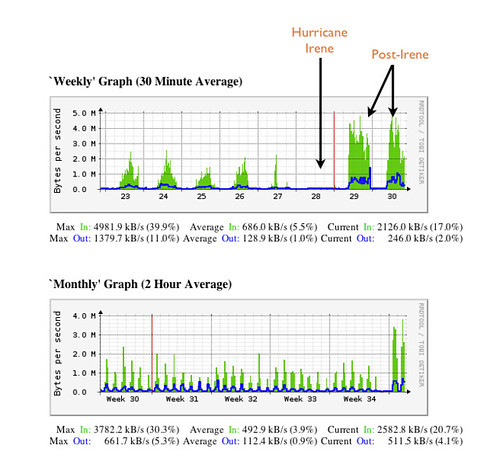
Image, which I hope is self-explanatory, by Darien Library.
One of the first places I went after the storm was over was the local library. I was supposed to work the day earlier because our librarian literally couldn’t get to work, but then wound up not working because there was no power at the library. My local library suffered no storm damage. Other libraries weren’t as lucky. The Department of Libraries in Vermont has been terrific both in trying to contact every library as well as informing the other librarians statewide about what needs to be done, who is in trouble and how to apply for FEMA grants now that libraries are an essential service (again thanks thanks thanks to all the people who lobbied to have that done). Here are some links to people doing things that may be instructive or useful for you either in figuring out who to help or in managing crises like this in the future.
- Department of Libraries website which has a front page post about the flooding
- Marlboro College’s LibGuide about flooding in their local area with resources and links
- LibraryThing has set up a wiki for tracking libraries that have been damaged and are in need of assistance. Not much there yet, please add informaiton if you have any.
- This Library Journal article also details other libraries that have suffered damage. One of the problems we’re having in Vermont is that due to power failures and transportation issues, some of the most badly affected areas are the ones we’ve heard from the least.
I’ve spent a lot of the past few days checking out the pages on Facebook where a lot of the communication about the recovery efforts are taking place. In case you’re curious, here are some of the pages where a lot of the local recovery work and information dispersal is actually happening
- Vermont Flooding 2011 was where the first news and photos were. People would tag news media organizations in their photos so photos would show up on the news media’s facebook pages and people asked a lot of “is this or that area okay?”
- VT Response and VT Response forum which has a listing of town-specific places to ask questions and offer or receive help
- HELP VERMONT specifically targeted towards relief work efforts
- Vermont 13 – keeping awareness alive about the 13 towns that were literally inaccessible thanks to flooding
- A road specific page about the damage to Route 107 which is a road that goes through the town next to mine.
- Road closures: official state page, collaborative Google map, another page with data visualization about the state
- CommonGood VT has a round up of services for citizens who need help
- VT Emergency Management has updates on Twitter via Facebook
- 802 Rescue is about how to volunteer for relief efforts
I’ll probably talk more about the upsides and downsides to using social media for this sort of thing, but the upside is it worked. People got information and they got help because they had access to things like Facebook and Twitter through their phones when they didn’t have any electricity, telephones or computers. Worth learning about.